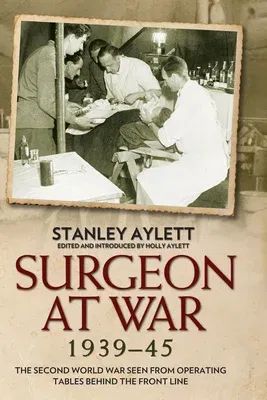Stanley Aylett's remarkable account of six years' service as a
front-line surgeon with the British Army is that rare thing: a complete
narrative from the first week of World War II until months after the
final capitulation of Nazi Germany. That war was the last Western
conflict in which military surgeons performed operations immediately
behind the front line, often in makeshift theaters set up in tents or
abandoned, battle-scarred buildings. This memoir records the resilience
and resourcefulness of the medical teams, fighting to save each wounded
soldier's life, and the advances in medicine such as penicillin and
plastic surgery that transformed their experience. The author draws on
his extensive diaries to describe the first advance into France at the
start of the "Phoney War" in 1939; the chaos of the retreat to Dunkirk
and subsequent evacuation of British and French forces; the sea voyage
round the Cape to join the Eighth Army in Egypt; leading a Field Service
Medical Unit in the Western Desert; the Allied invasion of France
following the D-Day landings; crossing the Rhine into Germany; and VE
Day, which Lieutenant-Colonel Aylett spent amid the horror of the
Sandbostel concentration camp in northern Germany. Alongside the
challenge of serving the wounded and dying, Surgeon at War also
reveals the passions of a young man--in search of lasting love,
exasperated by the incompetence of his superiors, encountering different
peoples and cultures, anxious that the narrow focus of battle surgery
will not jeopardize his medical career when peace returns. Few war
testimonies have the scope of this account. Stanley Aylett signed up in
the week war was declared, and survived to tell his story, edited here
by his daughter with extensive use of his own photographs and letters
home. It is a narrative of courage, duty, and endurance amid the fog of
war, but above all a tribute to the skill and humanity of those whose
daily lives revealed mankind at both its best, and its worst.

